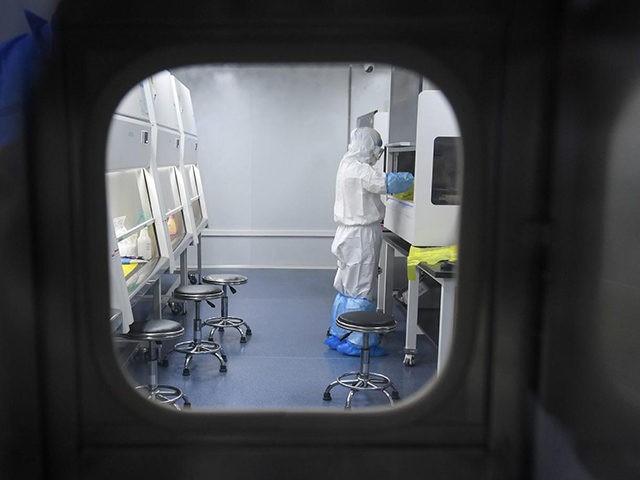Prominent Baghdad physician Dr. Hamid al-Lami was arrested Tuesday morning for making “unscientific statements” about the Wuhan coronavirus that contributed to “spreading a dangerous disease.”
Lami questioned the effectiveness of vaccines, claimed he could offer superior treatment with herbs and drugs, and said the Chinese coronavirus was “made” in a laboratory. Kurdish news service Rudaw described Lami as a “fierce” critic of vaccines, having launched an aggressive media campaign against them as soon as doses arrived in Iraq.
Coronavirus vaccines “cause immune reactions that attack the lungs,” Lami argued. He did not provide any evidence for this claim; clinical trials of most widely available vaccine candidates have not resulted in findings that match his claim.
When the Iraqi Doctors Syndicate expelled Lami, he responded with a video that accused the board of directors of taking “commissions” from drug companies to thwart his “national mission” of speaking out against vaccination.
Lami was “taken into custody after spreading the false claim that COVID-19 [Chinese coronavirus] was ‘made’ in a laboratory” and will be charged under an Iraqi law against “spreading misinformation about the treatment of coronavirus,” Rudaw said.
The worldwide medical community is very much divided on whether or not the virus emerged from a laboratory in Wuhan. The laboratory origin theory gained a sudden burst of credibility from international media over the past few weeks, and few scientists outside of the Chinese Communist Party are willing to say the lab leak theory is categorically “false.” The possibility that the virus escaped from a laboratory known to be studying naturally occurring coronaviruses is separate from Lami’s claim that the Chinese coronavirus is an artificial construct created in a laboratory, which is not a theory currently entertained by the mainstream medical community.
Iraq’s vaccine rollout got off to a painfully slow start, picking up only when influential Shiite cleric Moqtada al-Sadr received a public vaccination in early May. According to the Iraqi parliamentary health committee, over 610,000 of Sadr’s followers signed up for vaccination within 30 minutes of him receiving the shot and posting a photo on social media.
Iraqi health care workers are among the groups that seem least eager to get vaccinated, in part because they clearly distrust the medical system they work for. Iraqi’s generally do not trust their national government or its institutions, making them prone to circulating dire rumors and misinformation about major initiatives such as the vaccination program.
Iraq’s vaccination regime is somewhat haphazardly cobbled together with vaccines from Pfizer, AstraZeneca, and China’s questionable Sinopharm. About one percent of the population has reportedly been inoculated so far.

COMMENTS
Please let us know if you're having issues with commenting.